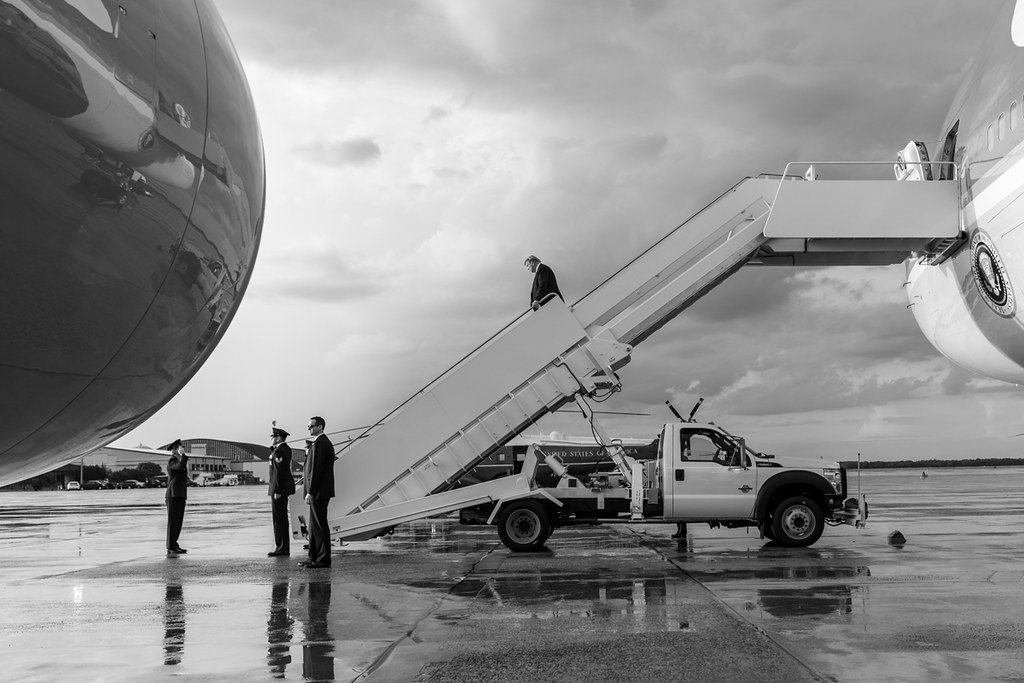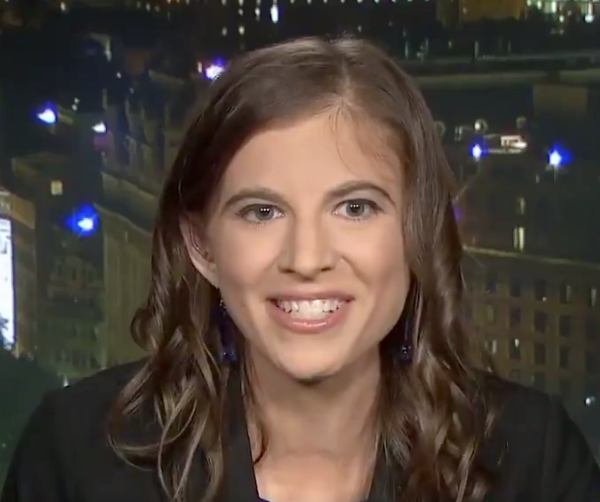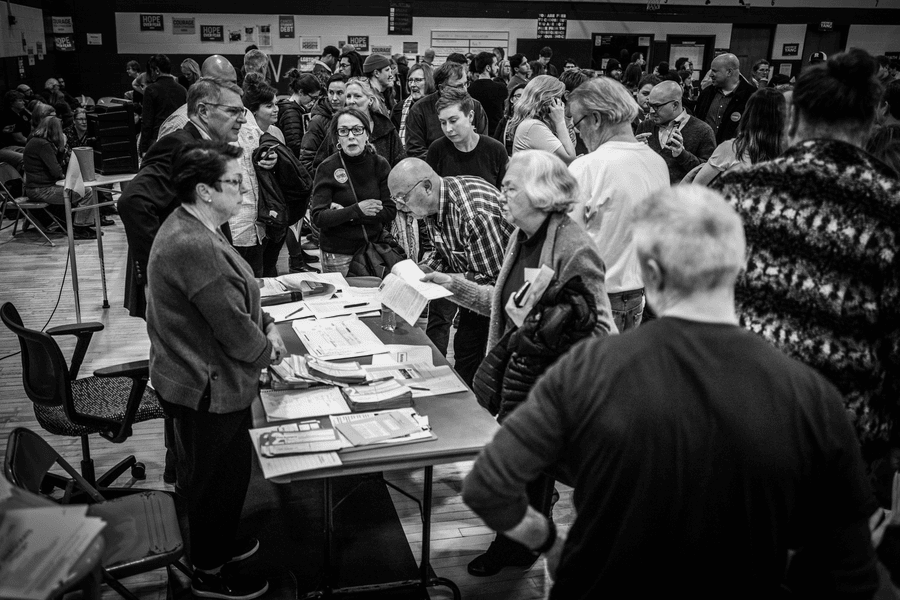How to Protect Elections—From the President
In July, as the country rounded out Donald Trump’s 30th month as president, sirens blared about the integrity of the 2020 presidential elections. The Senate Intelligence Committee issued a new report on “Russian efforts against election infrastructure” detailing “extensive” Russian activity “against U.S.

Published by The Lawfare Institute
in Cooperation With

In July, as the country rounded out Donald Trump’s 30th month as president, sirens blared about the integrity of the 2020 presidential elections. The Senate Intelligence Committee issued a new report on “Russian efforts against election infrastructure” detailing “extensive” Russian activity “against U.S. election infrastructure at the state and local level.” Days later, testifying before Congress, Robert Mueller warned that Russian interference in U.S. elections was among the “most serious” “challenges to our democracy” that he has ever seen.
But the threats facing democratic institutions in the United States don’t just come from foreign actors; they are compounded by a president who has threatened the domestic laws, institutions and norms that promote free and fair elections. President Trump has treated elections as games to be toyed with for personal gain using the tools of the presidency. As my colleagues and I at Protect Democracy describe in a new white paper on election manipulation and how to guard against it, protecting elections against threats, foreign and domestic, will require a broad response to the president’s efforts to manipulate elections to his advantage.
In the 20th century, elections were generally treated as antithetical to authoritarianism—but 21st-century authoritarians have proved that assumption wrong. Political scientist Brian Klaas has observed that “authoritarian regimes [have] learned [that] elections [are] actually a very useful tool to control their populations, to divide the opposition and to maintain power.” As Freedom House has reported, these regimes “organize a system that creates the illusion of competition while squelching it in reality.” Today’s authoritarians—such as Russia’s Vladimir Putin, Turkey’s Recep Tayyip Erdogan and Hungary’s Viktor Orban, all of whom Trump has lauded—“seek to fix outcomes well before election day through laws and policies that embed unfairness at every level,” Freedom House writes, and they take pride in the resulting electoral victories “as demonstrations of political mastery.” In functioning democracies, election manipulation by the person holding the nation’s highest office has often been a first step toward democratic decline.
Trump’s approach to elections follows at least three patterns common to authoritarian leaders. For some, there is always a temptation to dismiss aspects of Trump’s behavior as too erratic to reflect any pattern or strategy. But his moves in fact echo an authoritarian orientation toward elections—and whether this orientation reflects a conscious plan or simply an instinctual lurch toward consolidating power is beside the point.
First, authoritarians see all opposition as illegitimate, leading them to attack the legitimacy of political opponents, nonsupporters, independent actors and election outcomes that they don’t like. From the perspective of authoritarian leaders, no legitimate election could result in their loss; therefore, any election loss must be rigged.
Trump echoed this tactic in November 2018 when he tried to cast doubt on the ballot-counting process during the midterm elections, suggesting an early stop to ballot counting in Florida in order to preserve a Republican victory and, briefly, calling for a new election in Arizona. (He halted this line of attack only when the Republican candidates in Florida were ultimately announced the legitimate winners.) It’s the same trick the president used in 2017, when he established a White House commission whose only purpose, according to one of the commissioners, “seem[ed] to have been to validate” the president’s earlier claims that “3 to 5 million people voted illegally” in 2016, costing him the popular vote. By February 2017, this rhetoric had successfully convinced one in four voters that Trump was the “legitimate” winner of the popular vote, even though Hillary Clinton outstripped him by about 2.9 million votes. What’s more, a Washington Post survey from August 2017 found that 52 percent of surveyed Republicans would support postponing the 2020 elections, were President Trump to declare that postponement was necessary to “make sure that only eligible American citizens can vote.”
Second, authoritarians use strongman tools. They try to intimidate opposition leaders, activists and nonsupporters. They may investigate them, excoriate them in public (sometimes provoking death threats from supporters), and go after their families or their families’ means of making a living. They instill fear. Indeed, Trump has encouraged and endorsed violence toward voters and members of Congress who don’t support his policies, and has threatened to “jail” political opponents. He has used government power to retaliate against perceived political opponents, sending the message that standing in his way can lead to reputational and professional harm for you and your loved ones. For example, he pressured Attorney General Jeff Sessions to open an investigation into Hillary Clinton and explored ordering the Justice Department to investigate the former FBI director, James Comey. After Joe Biden entered the presidential race, Trump publicly discussed pursuing an investigation into his son, Hunter Biden, with the attorney general.
Third, authoritarians vilify minority (or historically marginalized) communities, often using language like “animals” and “infestation.” Voters from these communities tend to disproportionately oppose authoritarian leaders, so those leaders have an incentive to delegitimize their votes. Authoritarians know that attacks on minority political leaders are often more readily digested by many voters and by the media than are attacks on political leaders in the demographic majority (or historically empowered communities), so these become attractive vectors for misinformation campaigns and fear tactics.
This is President Trump’s go-to move. He has led an intensive, racist campaign of dehumanization against nonwhite Americans and immigrants; stoked fears of “invasion” by black and brown migrants; spread unfounded allegations of voter fraud; claimed that the polls will be monitored by law enforcement agents hungry to make arrests; and urged predominantly white crowds of supporters to conduct vigilante poll monitoring, all actions that could depress voter turnout in communities of color. With each page that he takes from the authoritarian playbook, President Trump weakens the laws, institutions and norms that provide the foundation for free and fair elections. These attacks, and the threats to democracy that they represent, may become even more dangerous in 2020. Unlike in 2016, Trump both controls the federal government and expects and intends to claim victory.
Because President Trump’s actions so readily fit the pattern of authoritarianism, they are easy to name and—if the country can muster the political will—possible to constrain. Congress may not be able to diminish the president’s access to the bully pulpit, but it can limit his power to turn words into actions including by constraining lower level officials’ abilities to lawfully enforce his requests. It is often more effective to regulate agencies and government officials rather than presidents—and this observation should guide legislative reforms intended to protect the nation now and in the future.
This is the thesis of the white paper that my colleagues and I at Protect Democracy recently published on this topic. We identify a number of reforms that should form a launching pad for broader governance reforms to protect our elections. I outline some of these proposals here; more details can be found in our report.
First, Congress should make it harder for a president to direct the Department of Justice to investigate his challengers. Trump’s efforts to turn the investigatory power of law enforcement on his political enemies have largely faltered—but he has come far closer than anyone should be comfortable with. Existing guardrails for protecting elections from manipulation by law enforcement are informal, ambiguous and limited in scope. Congress should require law enforcement agencies to consult with, and seek approval from, at least two career (nonpolitical) attorneys from the Justice Department’s Public Integrity Section before taking any major investigative step with respect to any candidate for federal office, members of a candidate’s immediate family or any federal campaign committee. Then, once the agencies take investigative steps, they should provide notice of those steps, as well as the views of the consulted career attorneys (who may well have been overruled by political officers), to (1) the relevant Office of Inspector General; (2) the Office of Professional Responsibility (for the Justice Department only); and, where possible without compromising the investigation or the rights of the accused, (3) the chairs and ranking members of the House and Senate Judiciary Committees. With these mechanisms in place, a better balance could be struck between supporting important law enforcement activities even during election seasons and protecting the federal prosecutorial power from political abuse.
Second, Congress should defang the administration’s ability to suppress voter turnout—especially in minority communities—by scaring voters with the possibility that law enforcement officers will harass them at the polls. A federal statute already makes it unlawful for any federal officer or employee (military or civil) to station “armed men” at the polls in a general or special election, except as necessary “to repel armed enemies of the United States.” Congress should additionally prohibit federal law enforcement officers or employees from taking immigration-related enforcement actions at polling places or conducting other nonroutine, nonemergency law enforcement activity on election days. Immigration enforcement actions in or near polls are particularly likely to intimidate eligible voters, specifically nonwhite citizens, and prevent them from freely exercising their right to vote.
Third, Congress should shore up key constitutional bulwarks against authoritarianism by making it possible for victims of unconstitutional government interference in elections to obtain money damages. Currently, it is exceedingly difficult for someone whose constitutional rights have been violated to obtain recompense. Congress needs to provide a statutory remedy (effectively, a statutory Bivens remedy) to ensure that individuals whose rights to vote are violated by federal officials are entitled to recover for their injuries. Governance without accountability is not democracy.
Fourth—and returning to the types of election interference that Mueller warned about—Congress needs to reckon with the fact that the president’s role as commander-in-chief gives him a unique ability to manipulate an election by inducing or accepting help from a foreign power. Soliciting or accepting assistance from a foreign national or a foreign government already violates existing campaign finance laws. But Congress can do more to ensure that the public learns promptly about interactions between campaigns and foreign governments—and, in particular, about offers of assistance from foreign governments. To do this, Congress should require candidates and campaign organizations to promptly disclose such contacts to the Federal Election Commission and the Federal Bureau of Investigation. It should make clear that government officials, as well as campaign workers, are prohibited from assisting the president in seeking foreign assistance to influence an election. Congress should also make it a crime to conspire to violate the Emoluments Clause and make it clear that election-related assistance is covered by the statute. Finally, Congress should ensure that White House employees, including translators and note-takers, are covered by whistleblower protections that absolve them from criminal liability under the new statute if they come forward to disclose potential violations of the Emoluments Clause.
Democracy depends on free and fair elections, where voters can choose their representatives and cast judgment on current officeholders. Through a series of actions and threats, President Trump has shown how an authoritarian-minded president might abuse the powers of the Oval Office to interfere with a free and fair election and avoid accountability at the polls. The proposals we lay out here will not hamstring legitimate political activity or good-faith policymaking—they serve only to check actions by a president and his supporters that interfere with elections. It’s time for Congress to act.
Disclosure: The author works for Protect Democracy, which has represented Lawfare editors Benjamin Wittes, Jack Goldsmith, Scott Anderson and Susan Hennessey on a number of separate matters.



.jpg?sfvrsn=d8787e74_5)

